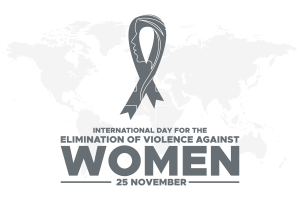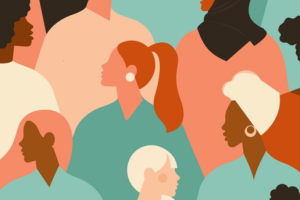We are NOT Weapons of War - Interview - Céline Bardet by Alain Grosjean, UIA Secretary General
1. What are the origins of your association and what are its main objectives? Can you introduce your team?
We Are NOT Weapons of War! WWoW is a non-profit start-up based in Paris, France, dedicated to fighting sexual violence in conflicts worldwide. For almost 20 years, I have worked on war crimes and been an international criminal investigator in many countries and have witnessed the systematic use of rape as a weapon of war in most conflict and post-conflict situations, and other unstable areas of the world. In 2010, I conducted the first trial in Brcko, Bosnia and Herzegovina, which defined rape as a war crime for the first time at the national level. This led to victims being able to access financial reparation from the state in the same way as any other war crime victim. I realised the importance of getting a wider audience to understand wartime sexual violence or war rape and therefore decided to found WWoW in 2014 to offer a comprehensive, holistic and effective response to the endemic use of rape in fragile environments by using innovative and creative legal approaches. Because the scourge of sexual violence is purposefully used as a tool in so many countries ridden with conflict and in all fragile environments, targeting women, girls and sometimes men, WWoW aims to better understand its causes, scope and modus operandi, and to develop effective and well-designed solutions. WWoW also conducts global advocacy on the issue of sexual violence in conflict situations and provides support during the "afterlife" of survivors and children born out of rape with its "Foster a Survivor" programme.
2. You have set up an innovative mobile web application for collecting evidence of abuse in conflict zones – what is the status of its deployment? In which countries do you work? What are your main challenges currently?
WWoW is particularly interested in the use of new technologies. The organisation has developed a secure mobile site, BackUp, which enables survivors to register a report and facilitates their access to medical, psycho-social and legal services. The tool also allows the transmission and saving of documents and evidence by anyone, anywhere in the world, to speed up the justice process and the fight against impunity. The tool was developed along with survivors and with the technological support of the Luxembourg-based company, Intech Lux, over a period of four years. A pilot study was conducted in 2019 and 2020 in Burundi, Rwanda and Libya. In 2022, BackUp was finalised and is currently being translated into several languages. A Russian-Ukrainian version already exists. We are ready to roll out BackUp worldwide, but for this we need the necessary financial resources, which we do not have at the moment.
3. What kind of aid do you provide to victims of violence in conflict zones?
We provide different kinds of aid. First of all, we are an agency with expertise on the issue of sexual violence in conflicts, and more broadly on issues of justice and security in post-conflict and unstable areas. We work as an umbrella agency in cooperation with local institutions and communities. We are the first global organisation to work on the issue, to have been created to address this issue, at a time when there was still very little talk of wartime sexual violence or war rape. So we do global advocacy and have developed a certain pedagogy on the subject, and our flagship project has been the development of this BackUp tool, over several years. But we also have a programme in which we help survivors and children born of rape to rebuild their lives through professional projects and to go to school (for the children). It is essential that victims are not locked into their victim status, which is sometimes a counterproductive effect created by some NGOs. We take the opposite approach and consider that these people have had a life before, that what happened to them does not define them and that they should therefore be able to have a life afterwards. We are also very committed to integrating the issue of war rape into the broader issue of good governance and reforms of the justice system and of the security sector. Sexual violence is not an isolated event that can be addressed in isolation. It is part of a whole.
4. The sad news of the war in Ukraine shows that sexual violence in conflict zones can also cross Europe's borders. What is the current status of the deployment of your web app in Ukraine and what are the difficulties you face in your actions, in this country specifically?
Whenever a conflict breaks out, the first reports of sexual violence emerge very quickly. We see this in all conflicts and Ukraine is no exception. But we have to be careful to distinguish between sexual violence in conflicts, which are war crimes, and rape as a strategic weapon, i.e. systematic or even systemic, planned and organised, etc., as was the case in Rwanda, the former Yugoslavia, Syria, Libya and Myanmar. In Ukraine, we do not have enough evidence to speak of organised and planned war rapes. BackUp is ready to be deployed in Ukraine, but we are still short of some financial resources to do so. However, the tool will firstly enable Ukrainian victims to express themselves and this is also what BackUp is for, and then give us an idea of what happened, where and how, and therefore enable us to quantify and qualify these crimes with evidence – both collective and coming directly from the victims. We hope to launch BackUp in Ukraine by September/October 2022.
5. Do you think we will be able to fight impunity for such abuse?
Impunity with regard to wartime sexual violence is very closely related to the general impunity we see for most international crimes. For every international crime committed, only 0.00001 of these crimes are prosecuted... So the task is immense. In the case of rape, it is even more complicated because a lot is asked of the victims, i.e. to testify again and again, to provide material evidence, etc., which makes no sense. We need to review the evidence requirements for sexual violence in order to prosecute such cases better and we also need to protect the victims better by not putting them under constant strain with numerous interviews, exposure, etc. Furthermore, the reality is that the vast majority of victims still remain invisible because they are in inaccessible locations or do not have access to organisations, etc. This is exactly why we created BackUp. The tool contains a secure link, a simple questionnaire, in all vernacular languages and with illustrations can be shared much more easily in very remote places and therefore make it possible to obtain information from many victims who have never raised their voices; without forcing them to talk directly to someone, etc. For many victims, talking to someone is much more difficult. I don't know if we will be able to fight impunity, but things are moving forward and that is positive. We must take this fight forward if we really want to achieve results and, as Dr. Denis Mukwege says, lay down a real red line. This applies to war rapes as well as to sexual and domestic violence in general. It is also and above all a question of raising global and public awareness, for each and every one, about the fact that sexual violence, particularly when committed against women, is a complete NO-NO. Full stop.
6. What help do you receive to fund your activities? How can we help you?
We have been (and still are) largely supported by H.R.H. The Grand Duchess of Luxembourg [2], since 2019. It was also in 2019 that we met UIA, which opened its doors to us by giving us a platform at its congress in November 2019. We benefited from the support of the Business Partnership Facility programme in Luxembourg, which enabled the finalisation and operationalisation of the BackUp tool. The Agence Française de Développement, through its innovation department, has also enabled a pilot study of BackUp in the field. We are still a very small organisation and we made the choice to be one – we are a small team, which works very well but with very few resources. Today, we are reaching a milestone with BackUp, and for all this effort and work to be meaningful, we now need to have the resources to implement BackUp in the field. Without these resources, we are stuck – and that is what is happening to us now.
7. What messages would you like to pass on in the light of your experience, especially to lawyers from all over the world who are members of our association?
The message is that we all have a role to play, whatever our profession, whatever we do, because what happens in the world concerns us. But as far as the legal profession is concerned, I think that lawyers should become aware and inform themselves about these types of crimes and, above all, help each other. When you are a lawyer in Paris or Luxembourg, you don't face the same things as when you are in Kasai (DRC) or in the Central African Republic. In this sense, I think that what UIA does is remarkable, by including international issues, shedding light on civil society initiatives such as that of my NGO, and enabling lawyers to further their knowledge and become involved.
[1] Céline Bardet will be one of the distinguished speakers at the Special Session on "Sexual Violence in Conflict Zones" to be held on Thursday, October 27 during the 66th UIA Annual Congress, in the presence of an exceptional guest of honour: Dr Denis MUKWEGE, 2018 Nobel Peace Prize Laureate.
[2] We invite you to also learn about the initiative of H.R.H. the Grand Duchess of Luxembourg, Stand Speak Rise Up!:
A taboo subject, the use of rape as a weapon of war is a time bomb that fragments societies and prevents the emergence of lasting peace. The association Stand Speak Rise Up! was set up at the initiative of H.R.H. the Grand Duchess of Luxembourg. Its aim is to denounce rape as a weapon of war, to prevent its proliferation and to support victims in rebuilding their lives and in meeting their need for justice. It acts as a "spokesperson" for victims and also for those seeking solutions. It organises regular meetings on specific subjects, inviting both survivors and international experts.
The aim is to draw up factual reports, propose solutions and lobby international bodies to take action and turn the tide. The association's programme has been developed around several themes directly defined during the Luxembourg forum in 2019 with survivors and specialists:
• healing physical and psychological wounds
• ending the stigma for victims;
• unifying rules and laws for justice
• repairing the damage;
• developing technology and finance for victims;
• enhancing the inclusion of children born of rape.
The Stand Speak Rise Up! initiative is a call to representatives of national and international organisations and civil society to rally behind survivors to support their cause and strengthen their means of action. For more information on the association and the major charity event to be held in Biarritz on October 15, 2022, please refer to: https://www.standspeakriseup.lu/







